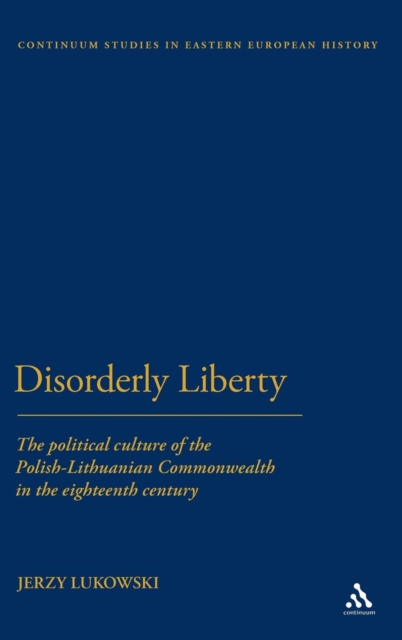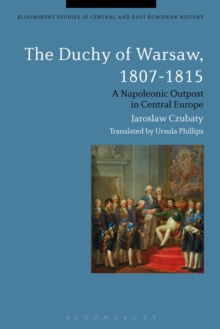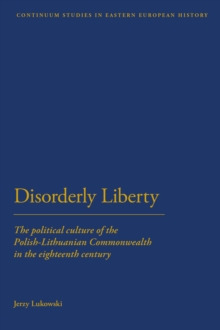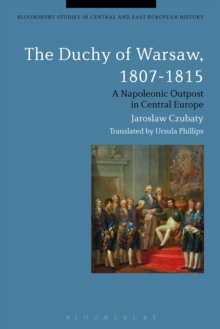
Disorderly Liberty : The Political Culture of the Polish-Lithuanian Commonwealth in the Eighteenth Century Hardback
by Dr Jerzy (University of Birmingham, Birmingham) Lukowski
Part of the Bloomsbury Studies in Central and East European History series
Hardback
Description
During the eighteenth century EuropeaaC--s republics may have been an integral part of the international scene, but they were marginalised or in decline.
When, in 1772, the Commonwealth of Poland-Lithuania suffered a massive loss of territory to its three more powerful neighbours, Russia, Prussia and Austria, Edmund BurkeaaC--s question Poland was but a breakfast where will they dine?aaC-- was asked across the continentaaC--s lesser states, republics and non-republics alike.
The slow, almost inevitable, process of PolandaaC--s digestion may have contributed to the relative ease with which that process was accepted in European chanceries.
Poland was not a state which was a shaper of history, but was on the receiving end of the attentions of more dynamic neighbours.
Yet it was, until the process of its disposal got under way, the largest state in Europe after Russia.
Lukowski considers how the republican ideals and the political culture of its ruling class and nobility remain part of the historical legacy not only of what is today Poland, but also of the successor states: Lithuania, Ukraine, Belarus.
Information
-
Out of stock
- Format:Hardback
- Pages:368 pages
- Publisher:Continuum Publishing Corporation
- Publication Date:05/08/2010
- Category:
- ISBN:9781441148124
Information
-
Out of stock
- Format:Hardback
- Pages:368 pages
- Publisher:Continuum Publishing Corporation
- Publication Date:05/08/2010
- Category:
- ISBN:9781441148124










